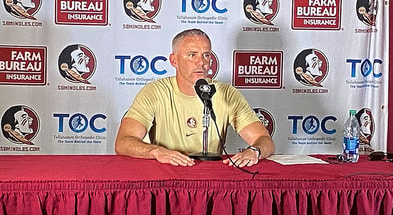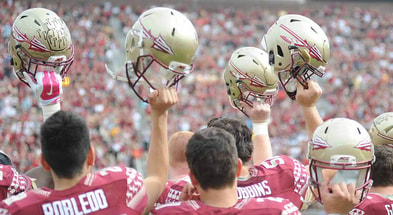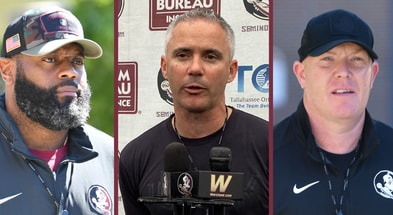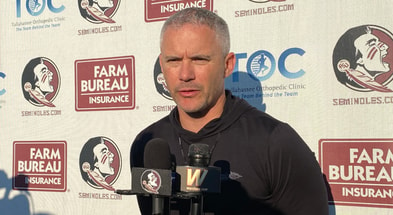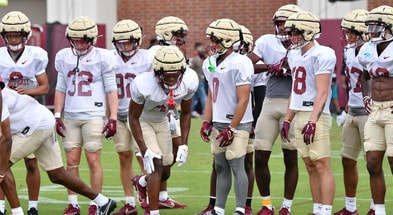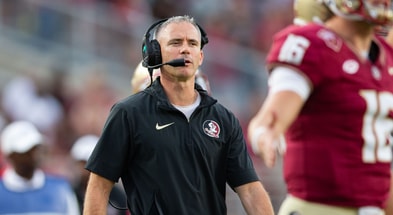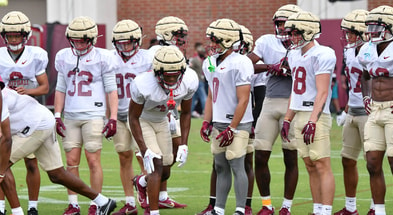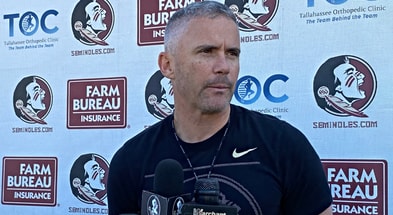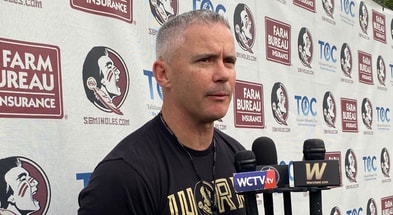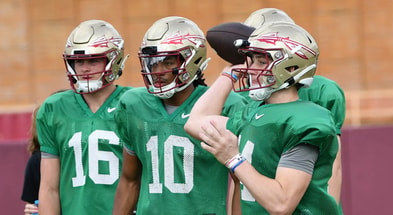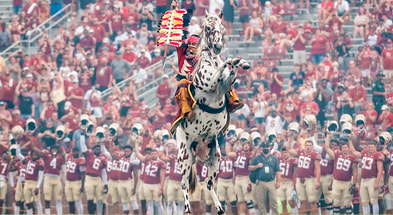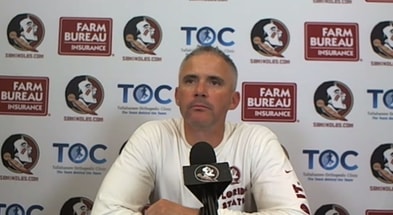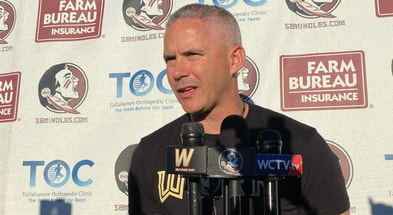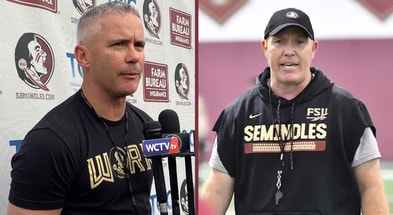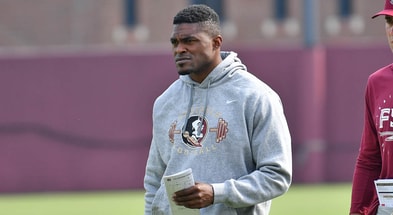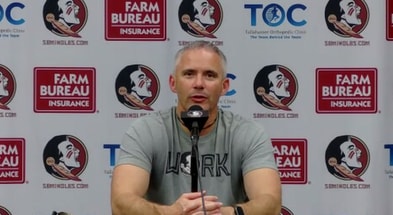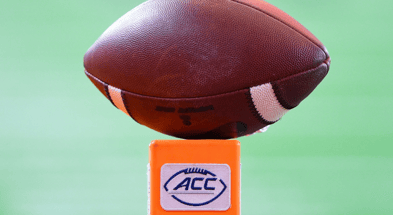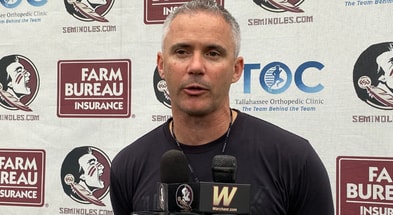Jim Phillips believes ACC is still 'connected' despite reports of schools exploring options
AMELIA ISLAND — Two days after reports surfaced that seven schools in the Atlantic Coast Conference have been meeting informally to discuss their future and the viability of the ACC, Commissioner Jim Phillips said Wednesday that the reports were no surprise to him.
In a 30-minute conversation with reporters following the conference’s three-day spring meetings, Phillips said he understands that all schools are concerned about their future — especially as the ACC faces a $30-$40 million revenue gap with two other conferences — and it’s only natural to try to protect their own interests.
He said he also was not bothered that several schools have brought legal teams to the league’s headquarters in recent months to review the conference’s Grant of Rights and media agreements. That is normal due diligence.
“Regarding some of our schools having conversations about the future, that just isn’t news to me, per se,” Phillips said. “There’s not a conference in the country and there [aren’t] institutions in the country that haven’t talked about conference expansion and the landscape and what’s best for my individual or our individual institutions, what’s best for our conference, etc. So, I appreciate that. And I understand it and I understand the attention to it.
“It’s no different than when folks come to Greensboro to kind of take a look at the Grant of Rights, and our media rights, and those types of things. I encourage them to come. I really do. I mean, we feed them and all the rest of it. That’s not a warning sign to me from a standpoint of something bad may happen, etc. These are schools that are under a lot of stress and a lot of pressures. And I understand that, I really do.”
At the same time, the commissioner said he was impressed by the way every school’s administrators who came here this week for the spring meetings approached the work with a spirit of collaboration. He said he believes all 15 schools, including part-time football member Notre Dame, are still “connected” and working toward a common goal.
“What I’ve been told is that we’re all in this thing together,” he said. “Emphatically. We believe in the ACC, we believe in where we’re going and we want to continue to work together.”
That esprit de corps doesn’t change the fact that ACC schools soon will be charged with competing on a national landscape while receiving at least $30 million per year less for their media rights than schools in the Big Ten and SEC. Or that the league’s Grant of Rights apparently has the schools locked in to that deal with ESPN until 2036.
Phillips said the conference’s athletics directors had a “healthy dialogue” about what can be done to shrink that revenue gap, with an eye on new revenue streams and potential changes to the conference’s revenue-sharing agreements.
“The reality is our conference is third in the country in [TV revenue] distribution. Third,” Phillips said. “And as we look at the projections, at least in this decade, we’re going to continue to be there. Now, we want to close the gap. We need to close the gap between the top two conferences that have started to run away from us. …
“We’ve had some tremendous meetings with [ESPN] and they understand being a 50-50 partner that they’re incentivized as well. … So, we have multiple ways where we’re trying to attack this. And again, as you’ve heard from me, I don’t think there’s one silver bullet or one move that you make that you close that financial gap.”
Phillips pointed to recent on-field successes of ACC schools as proof that the league is still strong and competitive with its peers. But when asked if being third in revenue is “good enough,” he said that is definitely not the goal.
“(Being third) is never good enough. For anybody that’s competitive. Of course not,” the commissioner said. “Our schools have done a great job in the resources they’ve been given. So, what I understand is that anything else we can do to close that gap will exponentially help our schools. And I think about it every day, I do. It is what it is. I don’t like going back to the past. And, ‘Oh, should we be in this position?’ When we decided to do this deal in 2016, we had 15 schools that I think raced to the opportunity to have a network, to lock in for 20 years and all the rest of that, and I understand that times change. And so you adjust.
“And it’s like anything else in life, it’s not always a straight line. And we’re figuring this thing out. I would just say this: I know the reports and I know the conversations and all the rest of it. I feel like we have a really connected group. I really do. And I’m not just saying that. They understand what we’re faced with.”
In the meantime, he said he has every confidence that ACC schools have enough resources to compete at a high level.
“I feel really good about the future of the ACC. I do,” he said. “And I’m not just saying that. We’re working at it. We’ve got great schools, we’ve got a great story to tell, we’ve had great success. We’ve got to close that gap for sure. For sure. But at the end of the day, as our people say, how much do you need to be a national champion in football and basketball and our other sports? Do you have to be at the very top of the level? Do you have to spend the most to be the best?
“I don’t know that there’s been an equation that has kind of connected the two. It’s certainly helpful, it certainly allows you a greater chance.”
Talk about this story with other die-hard FSU football fans on the Tribal Council.


